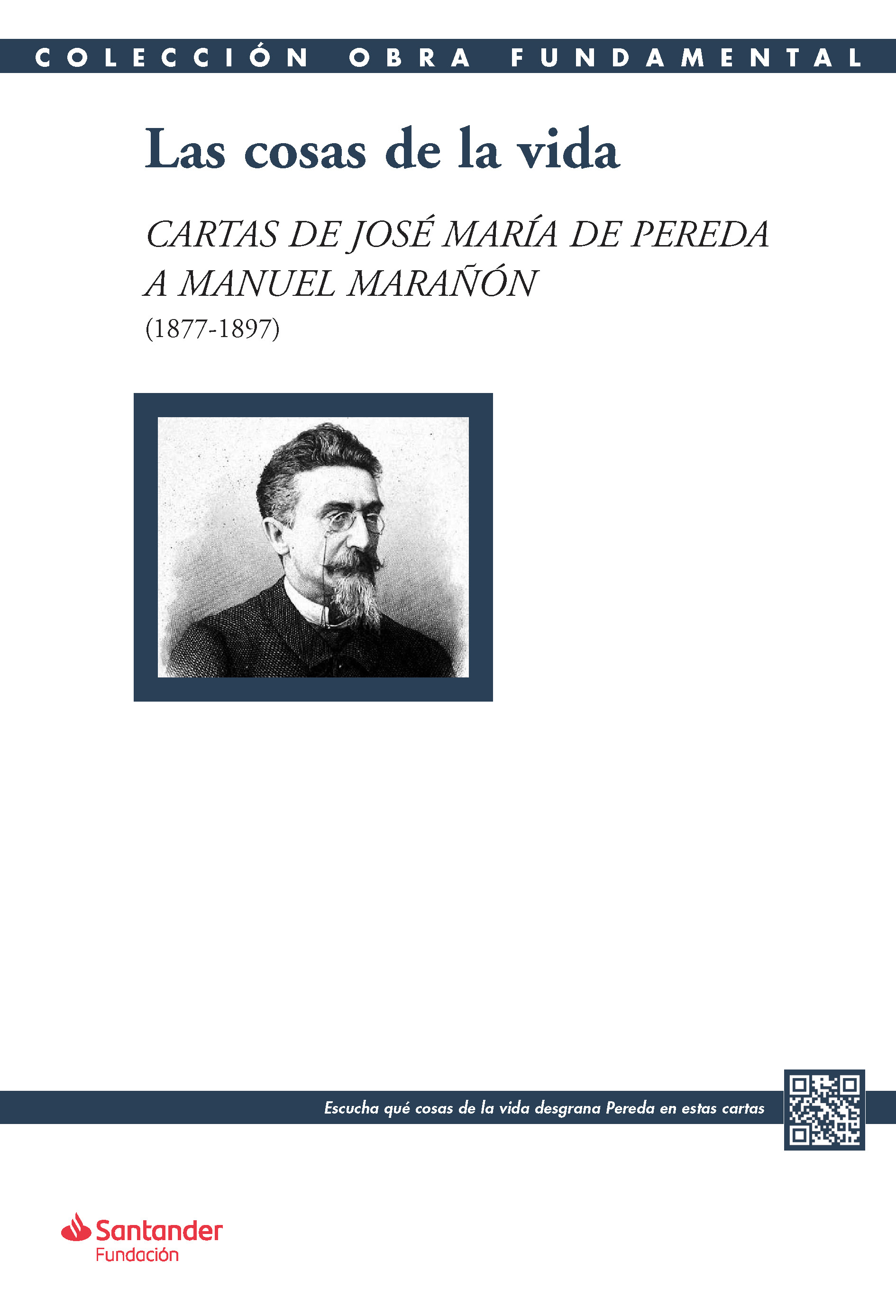José María Pereda, (Polanco, 1833 - Santander, 1906) is one of the great Spanish novelists of the second half of the 19th century. Not only was Manuel Marañón his "dearest" friend, but also "my alter ego, my other self", as stated in a letter dated February 5, 1895. Their lives were interwoven by this intense and unique collection of letters that was thought to be lost. Pereda wrote over 260 letters to Marañón, which have remained unpublished until now, preserved by the recipient's family in the archives of the Cigarral de Menores Foundation in Toledo. The collection of letters covers a period of twenty years (1877-1897), representing the entire novelistic trajectory of the Cantabrian writer, from his first novel to his admission in the Royal Spanish Academy. Numerous personal and literary issues appear in the letters, although, above all, it is exciting to be able to understand the writer's profession at that time and to observe, in unique detail, the literary process from beginning to end: from the first idea or narrative argument to the last technical details and material details of the edition, including the dissemination of this work among the public and the literary critics of the time.
These letters are essential to reveal previously unknown aspects of the life and personality of José María Pereda, as a writer and as a man, as well as constituting a document of great value on the literary and human contexts of that period and the cultural dialogues between the center and the periphery of the Spanish geography.
Jaime Olmedo (Talavera de la Reina, 1971) holds a degree in Hispanic Philology with an Extraordinary Prize from the Complutense University and a PhD in Philosophy and Spanish from the University of Bologna. He has developed his professional career at the Cervantes Institute, the RAE and the RAH, where he has been technical director of the Biographical Dictionary and the "Historia Hispánica" portal. He is also a professor of Spanish Literature at the Faculty of Philology of the Complutense University and a corresponding member of the Academies of History, Fine Arts and Historical Sciences of Toledo and of Sciences, Fine Arts and Noble Arts of Cordoba.

